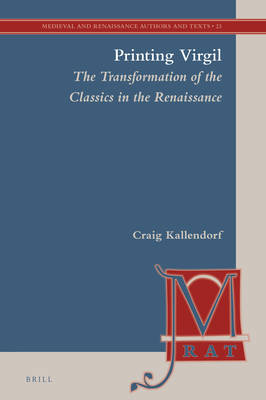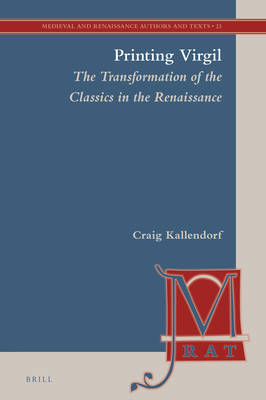
- Afhalen na 1 uur in een winkel met voorraad
- Gratis thuislevering in België vanaf € 30
- Ruim aanbod met 7 miljoen producten
- Afhalen na 1 uur in een winkel met voorraad
- Gratis thuislevering in België vanaf € 30
- Ruim aanbod met 7 miljoen producten
Zoeken
€ 239,95
+ 479 punten
Omschrijving
In this work Craig Kallendorf argues that the printing press played a crucial, and previously unrecognized, role in the reception of the Roman poet Virgil in the Renaissance. Using a new methodology developed at the Humboldt University in Berlin, Printing Virgil shows that the press established which commentaries were disseminated, provided signals for how the Virgilian translations were to be interpreted, shaped the discussion about the authenticity of the minor poems attributed to Virgil, and inserted this material into larger censorship concerns. The editions that were printed during this period transformed Virgil into a poet who could fit into Renaissance culture, but they also determined which aspects of his work could become visible at that time.
Specificaties
Betrokkenen
- Auteur(s):
- Uitgeverij:
Inhoud
- Aantal bladzijden:
- 204
- Taal:
- Engels
- Reeks:
- Reeksnummer:
- nr. 23
Eigenschappen
- Productcode (EAN):
- 9789004421349
- Verschijningsdatum:
- 5/12/2019
- Uitvoering:
- Hardcover
- Formaat:
- Genaaid
- Afmetingen:
- 157 mm x 236 mm
- Gewicht:
- 408 g

Alleen bij Standaard Boekhandel
+ 479 punten op je klantenkaart van Standaard Boekhandel
Beoordelingen
We publiceren alleen reviews die voldoen aan de voorwaarden voor reviews. Bekijk onze voorwaarden voor reviews.








